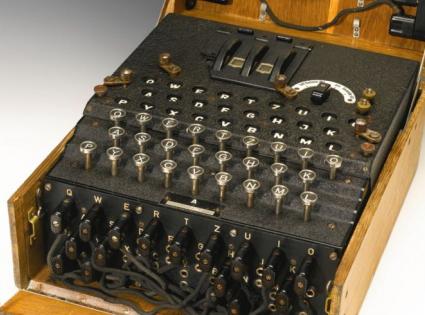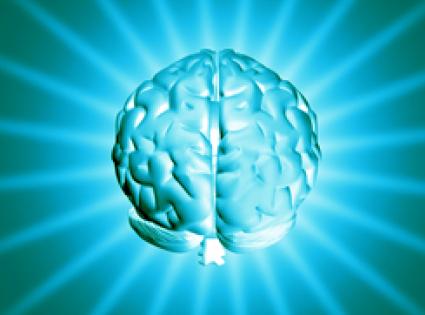Set Theory
Course Objectives
- Manage and use fluently notions of set theory.
- Discuss and solve problems that require the use of set theory.
- Discuss and analyze the history of set theory and problems of contemporary developments thereof.
Contents
The course is an introduction to set theory, in particular the so-called "Theory of Sets Intuitive" and axiomatic set theory Zermelo Fraenkel. In addition, a part of its history and its philosophy will be covered, as well as its more recent development. The goal is that students master the basic concepts of set theory, the axioms of ZFC, understand the problems that led to the axiomatic theory ZFC and difficulties. New developments and lines of work in the field of contemporary theory of sets will be presented, and eventually other set theories will be explored.
Program
1.1. The birth of Set Theory
1.2. Paradoxes and axiomatization of set theory
2.1. Basics of Set Theory
2.2. Theory of functions and relations
3.1. Cardinal numbers
3.2. Ordinal numbers
4.1. Axiom of choice and Generalized Continuum Hypothesis
4.2. Current trends
Basic and complementary bibliography
J. BAGARIA (2012): “La teoría de conjuntos”, La Gaceta de la Real Sociedad Matemática, v. 15, n. 2, pp. 369-388.
J.L. BELL (2005): Set theory: Boolean valued models and independence proofs. Oxford Clarendon Press.
G. CANTOR (1932): Gesammelte Abhandlungen mathematischen und philosophischen Inhalts. Springer. Reimpreso Hildesheim, G. Olms, 1962.
P. J. COHEN (1966). Set theory and the continuum hypothesis. W. A. Benjamin.
J. W. DAUBEN (1979): George Cantor. His mathematics and philosophy of the infinite. Princeton University Press.
K. J. DEVLIN (1979): Fundamentals of contemporary set theory, Springer.
F. R. DRAKE (1974): Set theory: an introduction to large cardinals. North-Holland.
J. FERREIROS (2007): Labyrinth of Thought. A History of Set Theory and its Role in Modern Mathematics. Birkhäuser.
A. FRAENKEL (1953): Abstract Set Theory. North-Holland.
A. FRAENKEL, Y. BAR-HILLEL, A. LEVY & D. van DALEN (1973): Foundations of set theory, North-Holland.
K. GÖDEL (1940): The consistency of the axiom of choice and the generalized continuum hypothesis. Annals of mathematical studies. Princeton University Press.
K. GÖDEL (1981): Obras completas. Alianza Editorial. Introducción y traducción de J. Mosterin.
C. GÓMEZ BERMÚDEZ (2009): George Cantor. Sistema de números y conjuntos. Universidade da Coruña.
A. LEVY (1979): Basic set theory. Springer.
T. JECH (2003): Set theory: the third millennium. Springer.
A. KANAMORI (2003): The higher infinite. Springer.
K. KUNEN (1992): Set theory: an introduction to independence proofs. North-Holland.
W.V. QUINE (1980): Set theory and its logic. Harvard University Press.
W. SIERPINSKI (1965): Cardinal and ordinal numbers. PWN Editions Scientifiques de Pologne.
R. M. SMULLYAN & M. FITTING (1996): Set theory and the continuum problem. Clarendon Press.
P. SUPPES (1960): Axiomatic set theory. D. van Nostrand. Traducción castellana: Teoría Axiomática de Conjuntos, Editorial Norma, 1968.
G. TAKEUTI & W. M. ZARING (1971): Introduction to axiomatic set theory. Springer.
G. TAKEUTI & W. M. ZARING (1973): Axiomatic set theory. Springer.
R. TORRETTI (1998): El paraíso de Cantor. La tradición conjuntista en la Filosofía matemática. Editorial universitaria, Santiago de Chile.
Skills
Basic skills
BS6. To have a strong knowledge base that allows them to innovate in the development and/or implementation of ideas, especially for research purposes.
BS9. The ability to clearly and unambiguously communicate conclusions and the knowledge and reasons behind them to specialized and non-specialized audiences.
BS10. Learning skills to carry out further studies and research in a self-directed and autonomous way.
General skills
GS1. Students should be able to produce readable, detailed and technically correct documents and research work that meets the current international standards for the disciplines.
Specific skills
SS1. The ability to identify traditional and current knowledge specific to the field of logic and philosophy of science, as well as the different trends of thought and tradition involved.
SS2. Mastery of the analytical tools provided by philosophy to facilitate the clear identification of the semantic, logical, epistemological, ontological, axiological and ethical factors that are present in science and technology.
Teaching Methodology
Theoretical classes
For each of the classes in which subjects are taught: a) the issue occurs, are given guidelines for their development and fundamental contents thereof are explained; b) the supplementary material is provided for the correct preparation of the subject by students and focuses on the nature and content of the main sources.
Work, seminars and complementary activities
Students have to perform a) an individual development work supervised by Professor and must be delivered to the teacher for evaluation; b) Hold seminars on specific topics and part of the process of acquiring skills to exchange ideas, experiences, dynamic teamwork and public speaking; c) Analysis and discussion of papers and articles on specific topics.
Tutoring
This is to monitor the degree of understanding of the exposed material and to clarify the doubts and questions that raises each student the contents of each of the topics of the subject, resulting in a useful way of relationship and communication with Professor to assist him in carrying out their learning and their work.
Assessment System
- Attendance and participation 20%
- Track work: 50%
- Final essay supervised 30%
Study time and individual work
- Total hours: 125hours
- Total on-site lessons: 10hours
- Total on-site theoretical lessons: 10hours
- Total hours individual work: 115 hours
- Tutorials: 10hours
- Tasks to be done along the semester: 73hours
- Final exam or final essay supervised by the teacher: 32hours







